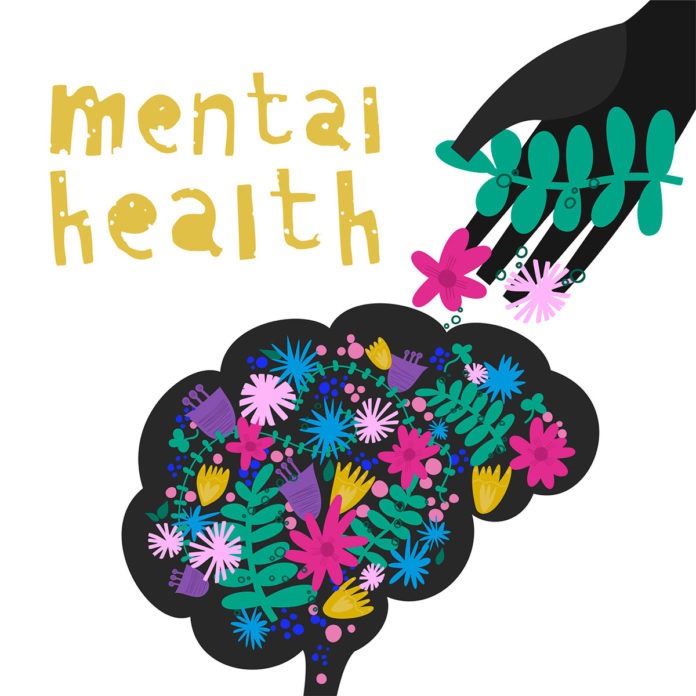It probably does not need to be said that this year has been a doozy.

As a mental health therapist and consultant, the year 2020 has shined a light brightly on the mental health issues that exist in and outside of the workplace, and there is a fine line dividing the two. Life as we use to know it has changed, and it has left many of us wondering what this all means for us moving forward.
Strategies that were developed as temporary solutions to COVID-19 now seem to be here to stay, for the foreseeable future.
Since we are in Q4 of business it is a good time to start thinking about what can be done in our next year to do our best to take care of the mental wellbeing of all in the workforce. From those who work from home, to those who have been working with the public day in and day out, each person’s wellbeing contributes to not only the greater good at the workplace, but also at home.
In this article I will explore some possible strategies that can help support employee and system wellbeing, as we continue to navigate these uncertain times, as well as continue to use this focus on mental health for good to build sustainable systems moving forward.
People who are mentally healthy have:
- A sense of contentment.
- A zest of living and the ability to laugh and have fun.
- The ability to deal with stress and bounce back from adversity.
- A sense of meaning and purpose, in both their activities and their relationships.
- The flexibility to learn new skills and adapt to change.
- A balance between work and play, rest and activity, etc.
- The ability to build and maintain fulfilling relationships.
- Self-confidence and high self-esteem.
As business leaders, you will set the tone and culture of your workplace. Below are some considerations to help support mentally healthy people.
Daily Strategies
- Daily check-in opportunities give people the opportunity to share their concerns, needs and successes. People want to be heard and seen. When we normalize the idea of sharing genuine concerns and needs, it creates a deeper level of support and safety. The safer employees feel the more focused and productive they feel they can be.
- To the best of the business’s ability, keeping and respecting all employees time off. Leaders can set the best example by keeping healthy boundaries with work; respecting the space when employees are off the clock.
Weekly Strategies
- Some of the world’s most successful companies like Microsoft use weekly check-ins for ongoing performance reviews. This gives employers and employees opportunity to continually evaluate how both the system and individual are doing. Examples of questions could be:
- How might we build a stronger culture as a remote team,
- Is there a project/task you’re interested in taking more ownerships of,
- What do you want to discussion on our next 1:1, and
- How did you feel this week?
This strategy also helps new manager learn how to give feedback and navigate growth and development.
- Have weekly mindfulness or meditative activities to create a shared experience, as well as build that skill of mindfulness throughout the organization.
- Increase 1:1 meeting frequency
Quarterly Strategies
- Review job descriptions. Ensure they are specific and engage employees in drafting the job contract. Powerlessness leads to dissatisfaction and disengagement. Getting buy in from your employees while also creating a contract of job responsibilities that speak to their strengths helps people feel more excited about their work.
- Review higher purpose and mission statements. Do a 360 review with both the mission and purpose, and find strategies to move you closer to clarifying and working towards your higher purpose.
- Review programs and policies that support stakeholder wellbeing.
Other Strategies to Consider
- Make mental health self-assessment tools available to all employees.
- Offer free or subsidized clinical screenings for depression from a qualified mental health professional, followed by directed feedback and clinical referral when appropriate.
- Offer health insurance with no or low out-of-pocket costs for depression medications and mental health counseling.
- Provide free or subsidized lifestyle coaching, counseling, or self-management programs.
- Host seminars or workshops that address depression and stress management techniques, like mindfulness, breathing exercises, and meditation, to help employees reduce anxiety and stress and improve focus and motivation.
- Create and maintain dedicated, quiet spaces for relaxation activities.
- Provide managers with training to help them recognize the signs and symptoms of stress and depression in team members and encourage them to seek help from qualified mental health professionals.
- Give employees opportunities to participate in decisions about issues that affect job stress.
Jolene Feeney, LMHC, CDP, is the owner of Mindful Wellness Counseling, PLLC, in Vancouver. She can be reached at Jolene@mindfulwellnesswa.com.



